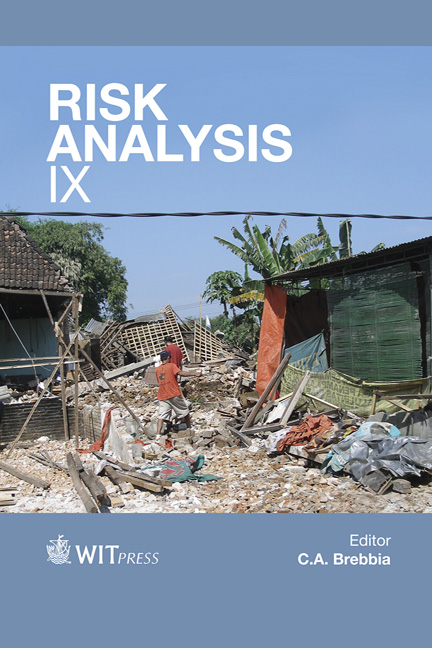Just And Safe Housing For Informal Settlers In The Developing World
Price
Free (open access)
Volume
47
Pages
12
Page Range
487 - 498
Published
2014
Size
349 kb
Paper DOI
10.2495/RISK140411
Copyright
WIT Press
Author(s)
J. Cuadra, M. Samples, R. Brower & J. Dilling
Abstract
The risk of disaster is increasing globally, particularly in under-developed or developing countries, due to population pressure and poverty. This risk is elevated where informal and non-permanent settlement housing is prevalent as these communities are caught up in a vicious repeat cycle of destruction and loss of life due to their location in high risk areas. In our study, we focus principally on the actions of informal settlers who inhabit areas that leave them vulnerable to disasters and, the often exasperating efforts of government leaders attempting to relocate them to safer settings. We believe that governments (the state) and communities often have difficulty finding a point of agreement because they have varying rationales on what is \“just” and what constitutes safe and appropriate housing. These perspectives are founded on different forms of judgment: one based on scientific facts and politics and one on social, emotive and aesthetic experiences. Practitioners often fail at solving these difficult problems because during dialogues people tend to only communicate positions rather than interests. A better understanding of the feelings and emotions of those affected could lead to more accurate transmission of their own positions and interests to others. In this study, we attempt first to clarify the origins of the conflicts between both perspectives using relevant literature on the topic; to later make use of preliminary data from our field work in the Philippines to serve as an example of the benefits of a careful study of the cultural, social, economic, and political factors and interactive dynamics that helps explain the way people decide where to live. The collection and analysis of such data for different case studies should contribute towards a better understanding of the individuals at risk and formulation of more effective disaster reduction strategies. Keywords: high risk settlements, justice, relocation, community resistance.
Keywords
high risk settlements, justice, relocation, community resistance.





